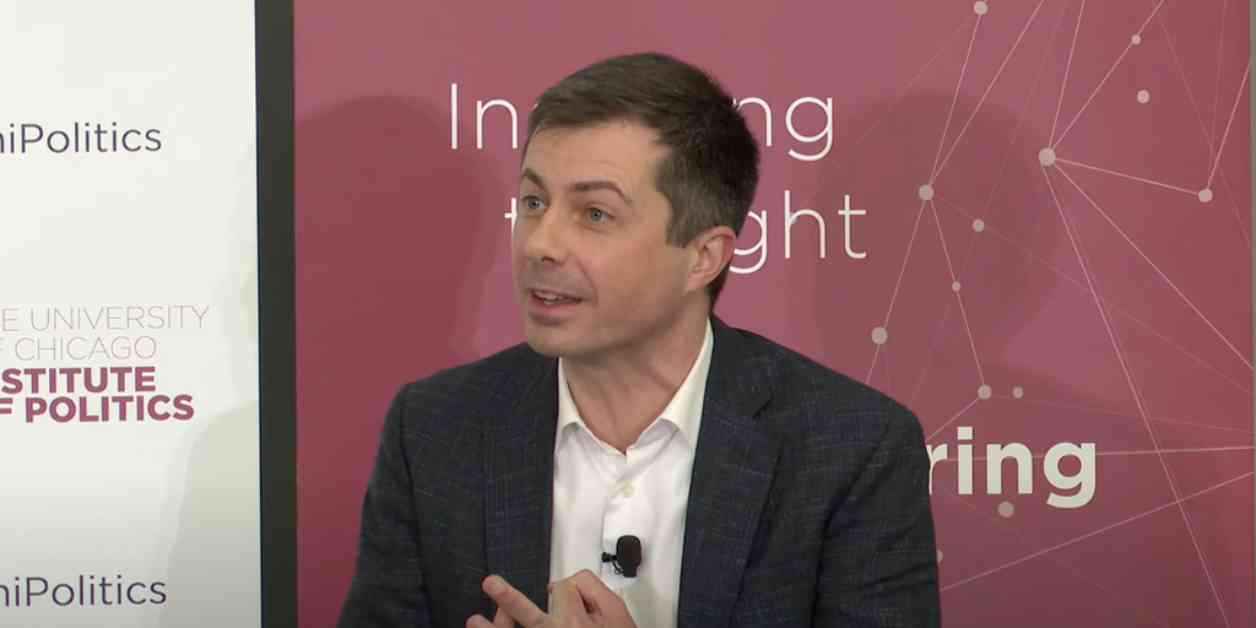Former Biden administration official Pete Buttigieg recently made headlines with his critique of the Democratic Party’s approach to diversity. During a forum titled “The Future of the Democratic Party,” Buttigieg expressed concerns about the party’s heavy-handed tactics, which he believes contributed to the election of President Donald Trump. The forum, hosted by the University of Chicago Institute of Politics, featured guest speakers Justin Bibb, the Mayor of Cleveland, and Rep. Marie Gluesenkamp Perez, D-Wa. The conversation was moderated by David Axelrod, who sparked a discussion on the DNC chair election and the party’s communication strategies.
But What About Diversity?
Buttigieg questioned the true meaning of diversity, asking whether it involves respecting people’s unique experiences and preventing mistreatment based on those differences. He also raised concerns about diversity training sessions that may come across as performative rather than genuinely inclusive. The former Secretary of Transportation highlighted how these issues could contribute to the creation of divisive political factions, such as the Trump Republicans.
Axelrod’s criticism of the DNC chair election as a spectacle prompted strong reactions from the panelists. Rep. Perez expressed frustration with the party’s emphasis on identity politics, while Mayor Bibb emphasized the importance of a more inclusive and engaging Democratic Party. Buttigieg chimed in, pointing out that the event was emblematic of the party’s struggle to unite and connect with a broader audience.
Lessons Learned and Moving Forward
As Democrats grapple with their defeat in the recent elections, reflections on the party’s missteps have surfaced. Many have highlighted the challenge of reaching young men and working-class voters, as well as the need for a more robust economic platform. Bibb, who chairs the Democratic Mayors Association, stressed the importance of meeting people where they are and embracing diverse lived experiences. He also criticized the party for being perceived as too “soft” and urged Democrats to engage with cultural events to connect with a wider audience.
The discussion at the University of Chicago forum underscored the complexities of navigating diversity and unity within the Democratic Party. As the party continues to evolve and adapt to changing political landscapes, the insights shared by Buttigieg, Perez, and Bibb offer valuable perspectives on the path forward. By addressing internal divisions, redefining diversity, and engaging with a broader spectrum of voters, Democrats aim to revitalize their platform and resonate with a diverse electorate.
Joshua Q. Nelson, a seasoned journalist covering a range of political and educational topics, provides essential context to the ongoing debate within the Democratic Party. Through his in-depth reporting and analysis, readers gain a deeper understanding of the challenges and opportunities facing the party in the aftermath of recent electoral setbacks. As a trusted voice in political journalism, Joshua’s insights shed light on the complexities of modern politics and the quest for a more inclusive and effective Democratic Party.


